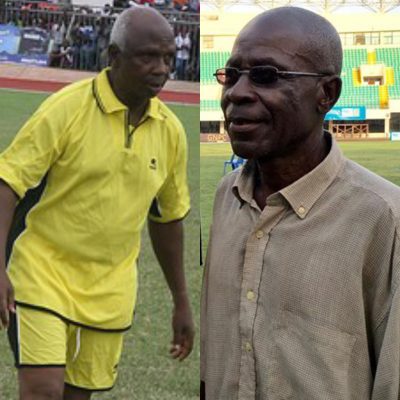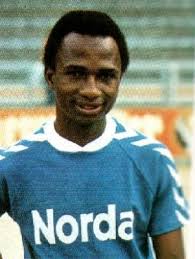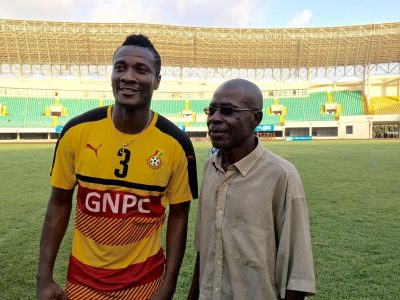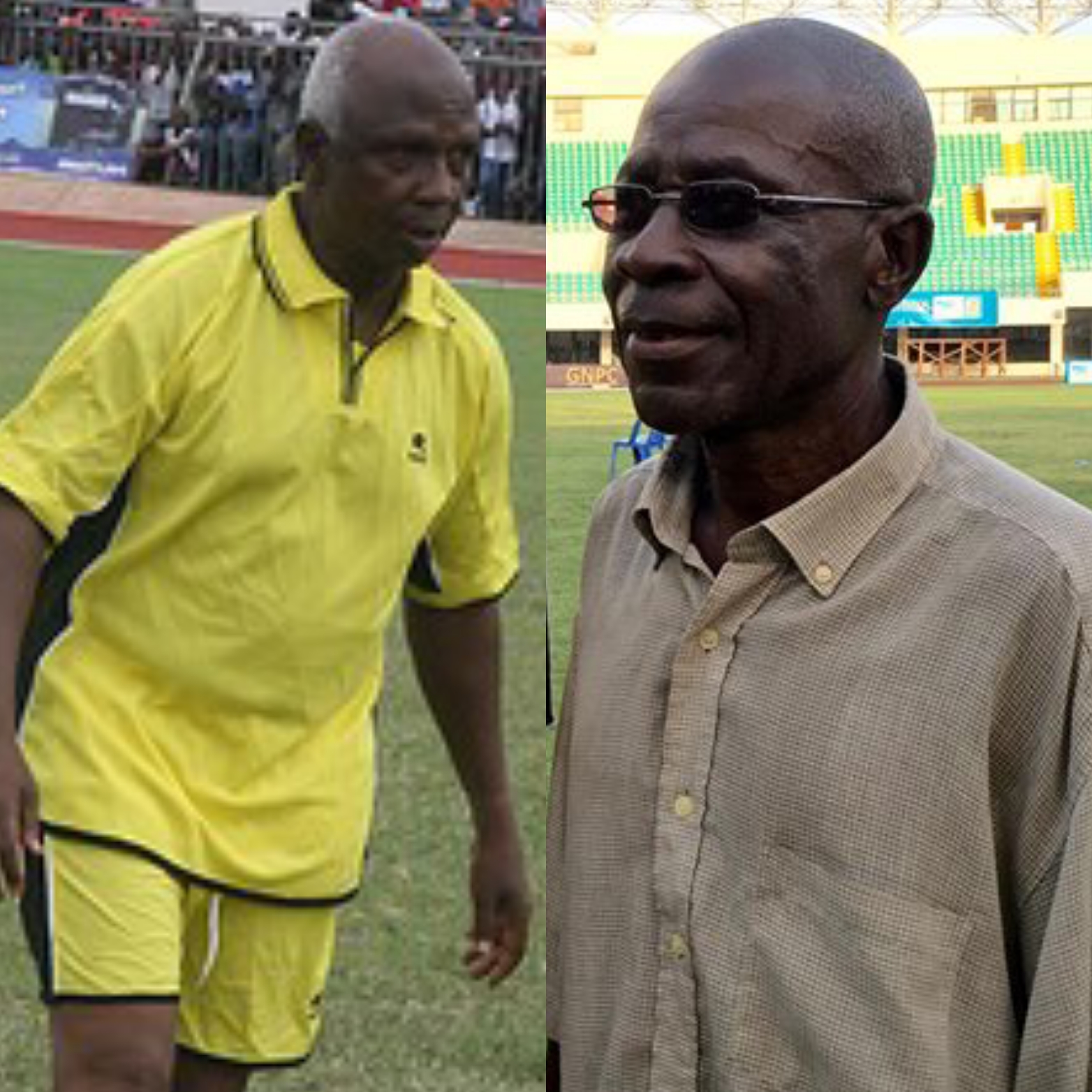You may not know both names above, but read this to the end.
The 2022 FIFA World Cup starts in a week’s time. I am not going to Qatar.
The reality of missing out on my 4-year football pilgrimage is just settling in. The pain is deep. Apart from the thrill of attending the greatest single sports event in the world, I also make a good living from reporting the Green Eagles of Nigeria when they are part of the global party. I will miss both this time.
The present situation truncates what has become a ritual for me. As I was making plans to go to Qatar 2022, the Nigerian Super Eagleswere converting to Super Chickens, stumbled over the last hurdle and fell, yakata.
I had experienced similar stumbles in my life, twice during my own footballing career and can tell that the pains from such failures remain and haunt players throughout their lives. My 1977 and 1981 experiences remain the worst parts of my, otherwise, incredible football career. Both times, our ‘plane’ to the World Cup taxied to the runway but could not lift off the ground.
Also Read – Odegbami: A Footballer’s Encounter With The Emir Of Kano!
So, I know the pain that most Nigerians are going through on the eve of Qatar 2022.

Ibrahim Sunday (left) and Amusa Gbadamosi
The picture will not leave my head about how a very ordinary Black Stars team, one of the weakest that I have seen in their great history, clipped the wings of the Super Eagles on home ground in what most football analysts had predicted would be a walk-over for the Nigerians.
So, here I am, still dazed, lamenting the huge loss I am suffering by sitting out the World Cup in Wasimi, and not Qatar.
Then, one Sepp Blatter, comes and adds insult to our injury. The former FIFA President is reported to have said, last week, that ‘Qatar 2022 is a mistake’. A mistake? How?
His words numb the senses. Is he not the one that superintended over a bidding process that produced Qatar in a manner that many still insist may reveal the biggest bribery scandal in football history? Otherwise, how is it that no one is able to completely rationalise why the World should go back to the future, go back to the model of 1930 to organise the biggest football event in the world in 2022 – a single-City World Cup model. Montevideo has been the only single city to host the World Cup. Qatar is no bigger than one city in Nigeria.
The mystery of Blatter’s ‘mistake’ will be revealed by the time Qatar 2022 is over. It will depend on how the municipality manages the over-one million people that will descend like locusts on this beautiful oasis in the desert.
Two weeks ago, I took some time off to visit Ghana with my two little sons. It was a break from the lamentation in Nigeria.
Also Read – Odegbami: Henry Nwosu, ‘The Youngest Millionaire’, In Need Of Help
Accra is bubbling with excitement. Ghanaians, in their characteristic optimism, believe the Black Stars will go far in the championship. That’s the feeling everywhere here. I invite my friend, Ibrahim Sunday, to share breakfast with us.
By the way, as poor custodians of football history in Africa, many may not even know who Ibrahim Sunday is.
Through my conversation with him I intend to tell a little about him and also the incredulous story of another footballer that very few Nigerians have ever heard of.
Ibrahim Sunday is an Iconic figure in Ghanaian football. He is an unforgettable hero. He played for and captained Ghana’s biggest Club, Asante Kotoko, to win the African Club championship twice. He was so good he was the first recipient of the African Best Player Award in 1971, and captained the Black Stars to AFCON. He was the first African to play professional football in the Bundesliga with Werder Bremen between 1975 and 1977.

Ibrahim Sunday as a young footballer
He became a coach and took his former club, Asante Kotoko, to win the Africa Club championships. A few years later he took Africa Sports of Cote D’Ivoire to win the same trophy. He also coached FC 105 in Gabon.
Ibrahim Sunday is a true legend of African football. Very few match his achievements and records in the continent.
We have been very close friends for over 2 decades.
Our conversation at breakfast is very refreshing and revealing.
I ask him the source of his surname, ‘Sunday’, when he is obviously a staunch Muslim. He reveals to me what most Ghanaians do not know. ‘Sunday’ is a nickname his father gave him as a kid who would run away from home every Sunday morning to play football. So, his father called him ‘Sunday’, a name that has stuck to him till now. His real surname is Jubrin.
He tells me, also, that his father is a full-blooded Nigerian, a Hausa man from Birnin Kebbi, once under the Kano Emirate but now in Kebbi State. That’s where Ibrahim’s fluent Hausa language comes from. Ibrahim and I always converse in the language.
He tells me he still visits his roots in Nigeria from time to time, and makes sure his children also visit. Having said that, he is also fully Ghanaian because the country is matriarchal, and his mother is from the Kumasi area of Ghana where he grew up and played all his football in Ghana.
I ask him about Amusa Gbadamosi, a legendary football player in Ghana with heavy Yoruba tribal marks that played for the Black Stars in his era. I ask him about some incredible stories I was told by Philip Boamah when we were both in Shooting Stars FC, Ibadan in the mid-1970s. Since then no other Ghanaian had been able to corroborate Philip’s stories. Until now. Ibrahim remembers Gbadamosi very well. They were team mates and roommates in Asante Kotoko and in the national team.
Also Read – Odegbami: ‘Mathematical’ Returns To The Football Field!
He tells me that Gbadamosi is a full-blooded Nigerian, so good that some conventional codes of conduct were broken to accommodate some of his idiosyncrasies, one of which was a drinking habit.

Ghana legends: Asamiah Gyan and Amusa Gbadamosi. Photo credit: Go Humanity
Gbadamosi loved his Guinness Stout. He would drink a big bottle before any football match. The national team coach got to know about this unusual and unacceptable behaviour. He dropped Gbadamosi from his squad heading to Tunisia for the 1968 AFCON, and the team left without the exceptionally gifted player and goal poacher.
There was a public outcry and protests on the streets in Ghana. How could the coach have dropped one of the best players in the national team for what they consider a flimsy habit that did not negatively affect his performance on the field of play. He had won several matches under the ‘influence’ for Ghana. So, what was the coach’s problem?
The Ghanaian President, a staunch fan of the football, Dr. Kwame Nkrumah, had to intervene. He arranged a private plane loaded with a few cartons of Guinness Stout to take Amusa Gbadamosi to re-join his team mates in Tunisia. The coach had no choice but to take him back with his drinks.
Gbadamosi did not disappoint his huge Ghanaian supporters.
He went on to become the Star of the 1968 Black Stars team that won that year’s AFCON in Tunisia.
Thereafter, he went to that year’s Olympic Games in Mexico with the Black Stars, and played so well that he was the only player offered the opportunity to return to Mexico and play for a professional club there. He would have been the first African player to play professionally in that part of the world.
Gbadamosi told Ibrahim Sunday, later, that he declined the offer only because there was no way he would have found Guinness Stout to drink before matches in Mexico.
As the rest of the world starts to assemble in Qatar this week, I use the story of Amusa Gbadamosi to wish all the participating players the best of luck.
By the way, Gbadamosi is still alive and kicking, living a quiet life in retirement in the northern part of Ghana, still sipping his Guinness Stout.
May the best teams win!
Segun Odegbami
Copyright © 2024 Completesports.com All rights reserved. The information contained in Completesports.com may not be published, broadcast, rewritten, or redistributed without the prior written authority of Completesports.com.

COMMENTS